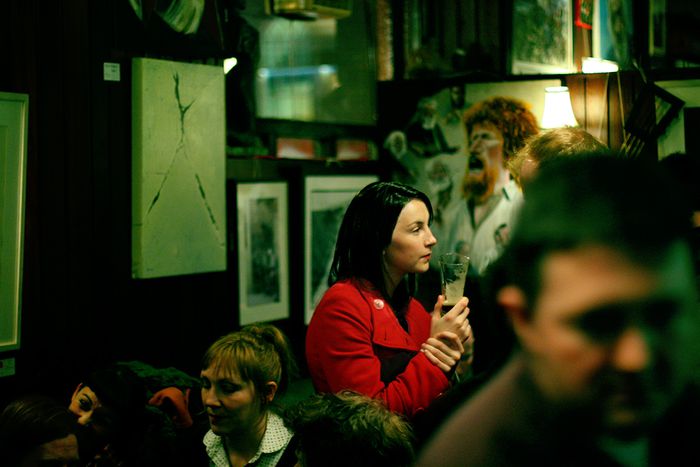
Lisbon treaty: I'm voting yes for jobs and climate change
Published on
Democracy, cross-border crime and climate change are issues that resonate with young Irish people, a 'yes' campaigner says, which is why people should vote for the EU reform Lisbon treaty in a referendum on 2 October
‘Jesus, it’s about time.’ That was how one of the first people I canvassed responded when asked if he would like some information on the Lisbon treaty. At a time when lies and misinformation are flooding the public stage, Irish people are crying out for real information. The political establishment is too discredited to do this effectively, and so it falls to grassroots civil society organisations to provide the facts and honest analysis that people need to make an informed decision on an issue of critical importance for the future of our country.
Important for young people
That’s why I started working with Generation YES, an independent campaign set up in December 2008 by young people who were dismayed by the prospects for our jobs and futures if we rejected Lisbon again, and by the failure of the mainstream campaigns to address these issues from the perspective of young people. Fuelled by the energy of our volunteers we have grown into a force to be reckoned with. We have harnessed the power of social networking to build up by far the largest online fanbase of any Lisbon campaign group. Armed with the certainty that Lisbon is a good treaty which will be good for Ireland, we now have to go out and argue the case with our peers around the country.
The Lisbon treaty is crucial to protecting the futures of young people like myself
It is now widely accepted that the decision that Ireland takes on 2 October will profoundly affect our future, both in Europe and in the world. At a time of crisis and uncertainty, the Lisbon treaty is crucial to getting us back on track and protecting the futures of young people like myself. By creating opportunities for investment in jobs in green energy, technology and sport, by equipping the EU to tackle global problems such as climate change and human trafficking, by significantly beefing up the power of our elected representatives in both the Dáil and the European parliament, this treaty is vital to Ireland’s future, and indeed to that of the EU as a whole.
Lack of information
By far the most-cited reason for the Irish rejection of the first Lisbon referendum on 12 June 2008 was the fact that people did not feel engaged in the debate. 42% of people who voted No did so because they did not feel comfortable voting on a treaty they knew nothing about. The group with the highest No vote were the 18-30 year-olds, who voted by an alarming 59%. The problem is an information deficit. As a campaigner, I focus on the substantive benefits of the Lisbon treaty, with particular emphasis on the areas of democracy, cross-border crime and climate change. These are issues that resonate with young Irish people.
Lisbon sells itself
Like the voter who thought it was ‘about time’ for a proper debate on Lisbon, the people I work with were hugely frustrated with the quality of the discussion in 2008. Now once again organisations with dubious agendas are trying to subvert the debate, by introducing fears of a 1.84 euros (£1.67) minimum wage and other spurious allegations. The truth is that Lisbon sells itself. A treaty that enables the EU to fight cross-border crime and climate change whilst simultaneously enhancing national oversight of EU decision-making is in the interest of all Europeans. One last push, and hopefully on 3 October the whole of Europe can celebrate together.



